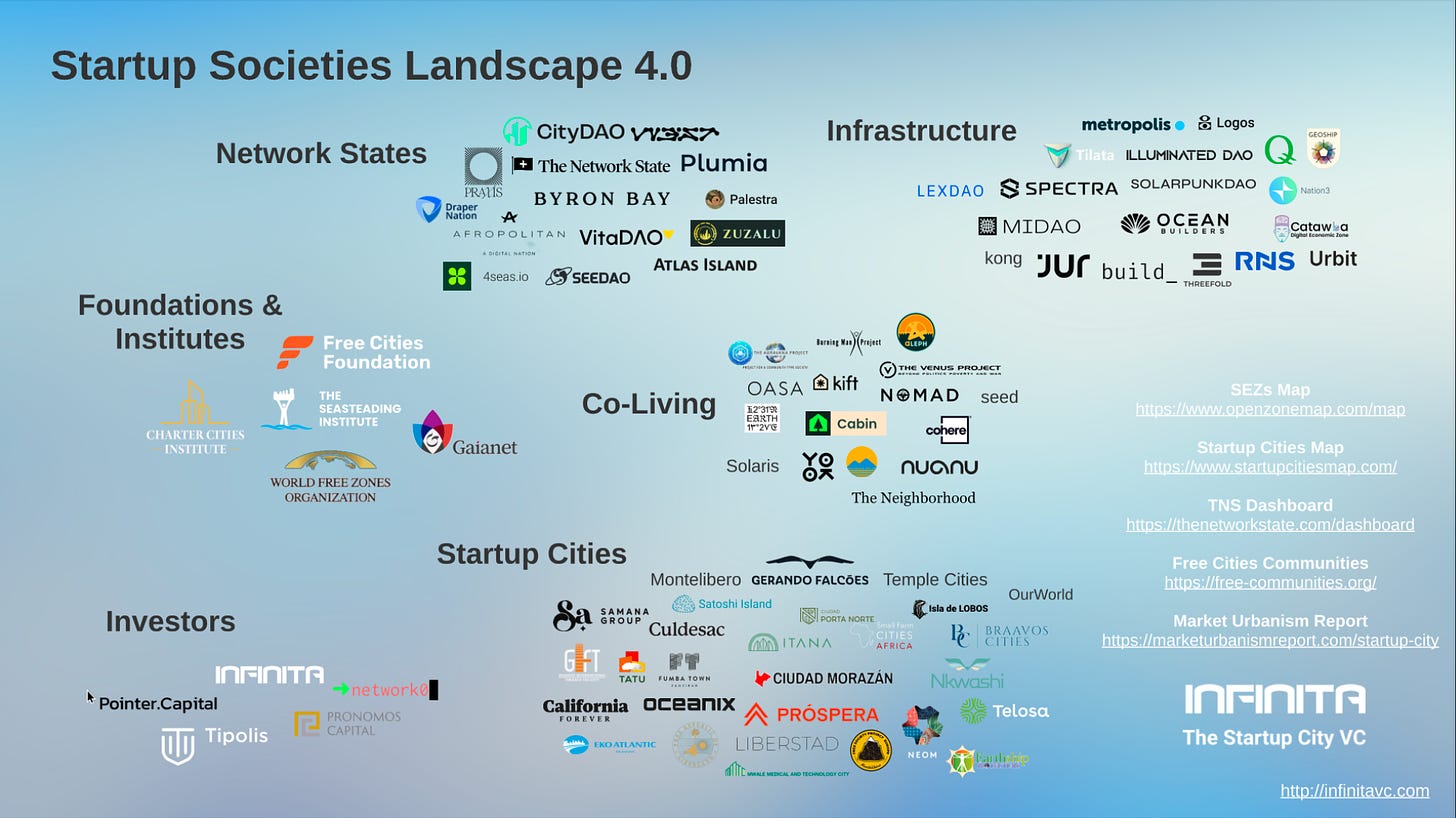Thanks to sucito.eth a talented Honduran web illustrator, for the great work.
(Click image for interactive version, or link here, PDF download here)
The map merges the "new cities" ecosystem driven by the work of The Seasteading Institute and the Charter Cities Institute, with the "network state" movement spawned by Balaji Srinivasan’s book that’s attracting crypto/tech communities.
This is a one-snapshot view of this emerging ecosystem that aims to disrupt the largest industry in the world: the governance layer of civilization.
These are startups that transform some layer of the civic or governance stack, ranging from social and legal technologies to innovation in architecture.
To set context again (see previous posts for more):
It’s necessarily reductionist (many of these projects are more complex)
Startup cities are jurisdiction-first, network states are community-first; but they both aim for both physical jurisdiction and in-person community living
Co-living projects aren’t aiming for jurisdictional autonomy, they’re innovating in an area where they can work from legal systems in existing jurisdictions
The primary intention of the distinctions and the map above was to make clear this isn’t an “online-only” space or far into a utopian future, which is a common false impression. There are real projects with physical jurisdiction, and 100s residents.
It seems to me this is increasingly becoming clear to people, so in future iterations of the map there might be space for a different kind of nuance.
For example, it seems to me there’ll be two kinds of “network society” strategies regardless of community-first or jurisdiction-first:
The vertical network society: Prospera or Itana fall under this - they build a full-stack jurisdiction with land, laws and real estate.
The horizontal network society: Cabin or Vitalia (co-founded by me) fall under these build an industry or city “districts” but not the full-stack
If you want to be vertical, you need to get good at government negotiations, legal & formal governance, real estate, a lot of traditional stuff.
If you want to be horizontal, you need to get good in a specific industry or technological development (e.g. biotech).
It’s hard to become good at both, as these are functionally and culturally very different types of organisations you need to build.
I will reflect on this point more in the future, stay tuned!



